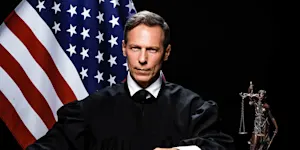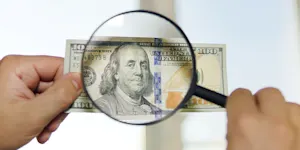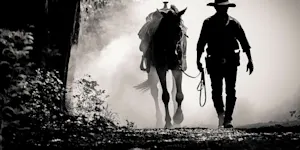What Makes This Word Tick
Ah, "cavalier." It rolls off the tongue like the trot of a gallant horse, which makes sense given its origins in horseback riders. "Cavalier" has a regal air, suggesting a spirit of aloofness or carefree nonchalance. It's the kind of word that wears a feathered cap and thinks nothing of the opinions of others.
If Cavalier Were a Person…
Picture a cavalier as a dashing gentleman, perhaps in velvet attire with a twinkle in his eye, seemingly indifferent to life's ups and downs. He approaches the world with a shrug and a grin, charmingly addressing even the dullest situations with a dash of flair.
How This Word Has Changed Over Time
Originally referring to a mounted soldier or knight, "cavalier" was all bravery and prestige in the 16th century. But, over time, its meaning has pivoted to describe one with a dismissive or haughty attitude. It's a fascinating shift from noble to a bit, shall we say, lackadaisical?
Old Sayings and Proverbs That Use Cavalier
While "cavalier" itself doesn't headline many old adages, its roots in knightly elegance remind us of the proverb "Chivalry is not dead." This, of course, harks back to the days when honor and gallant manners were the defining traits of a cavalier.
Surprising Facts About Cavalier
Did you know that "cavalier" has a historical connection to the Royalists during the English Civil War? They were known as Cavaliers, loyal to King Charles I, and were distinct for their flamboyant clothing and devil-may-care manner.
Out and About With This Word
You might encounter "cavalier" when someone describes a careless attitude, often in critiques—“He took a cavalier approach to the rules.” Or perhaps, in a more retro setting, discussing a style of dress or demeanor.
Pop Culture Moments Where Cavalier Was Used
The term "cavalier" rides into pop culture with its use in Cavalier King Charles Spaniel, a dog breed favored by British royalty. There’s also the Cleveland Cavaliers basketball team, bringing a modern twist to this age-old term.
The Word in Literature
In literature, "cavalier" evokes stories of adventure, romance, or nonchalance, fitting neatly into genres like historical fiction. Authors like Sir Walter Scott or Alexandre Dumas could have easily penned a cavalier character, brimming with bravado and charm.
Moments in History with Cavalier
Picture Charles I's supporters—Cavaliers—with their flamboyant, rakish charm during the English Civil War. The era was a vivid tableau of historical change, where cavalier styling sharply contrasted with the more austere Roundheads.
This Word Around the World
In French, "cavalier" is used similarly to refer to horse riders or knights. Across the globe, you’ll find related terms tied to equestrian or military roots, although cultural nuances color the word with unique local flavor.
Where Does It Come From?
"Cavalier" traces back to the Latin “caballarius,” meaning horseman. The transition from a literal rider to a more abstract attitude speaks to how language captures societal shifts—once a title of valor, now an expression of airy indifference.
How People Misuse This Word
Often, people conflate "cavalier" with "carefree," without grasping its underlying tone of arrogance or dismissiveness. It’s less about ease and more about a stylish disregard for convention.
Words It’s Often Confused With
Careless: Lacks the style or intent of arrogance associated with "cavalier."
Reckless: Implies danger or irresponsibility, which "cavalier" doesn’t necessarily have.
Nonchalant: Shares a lack of concern but without the haughty undertone.
Additional Synonyms and Antonyms
Synonyms include blithe, indifferent, and disdainful. Its antonyms, on the other hand, would be attentive, cautious, and deferential.
Want to Try It Out in a Sentence?
"His cavalier dismissal of the meeting's importance surprised the diligent team members, who had hoped for a more engaged response."
















